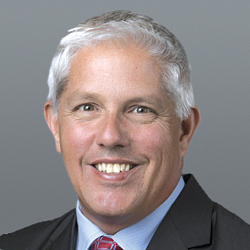 Aaron Breidenbaugh
Aaron Breidenbaugh
Director, US Markets & Regulatory Affairs
Rodan Energy Solutions (USA) Inc.
A recent article in a major trade publication may have left some readers with the impression that Dominion Virginia Energy was leaving PJM, the regional market and grid operator whose footprint spans 13 states and Washington DC, over the region from the mid-Atlantic seaboard to as far west as Chicago. This is not the case.
What Dominion did decide to do for at least the next five years is to take all its approximately 16,000 MW of customer load and over 18,000 MW from its 175 generation resources out of the PJM capacity market. Dominion’s load and generation will continue to participate in the PJM energy and ancillary service markets. Dominion will also continue to both support and benefit from the reliable operations of the grid operator.
What does this mean for Dominion customers?
For most customers, Dominion’s new position will probably mean very little to them. The decision has no impact on existing retail rates and should have no impact on the reliability of either the distribution or bulk power transmission system. Dominion has essentially elected to self-supply its own needs using its own generation. This is how the utilities operated for nearly a century in PJM and how most utilities that are not part of regional grid operators continue to operate.
What about prices?
The Dominion action removes about 11% of the 160,000+ MW of generation that cleared in the last PJM capacity auction. You might think that such a loss of supply would drive up prices. However, Dominion also removed an amount of load (and required reserves) that are essentially equivalent, which would otherwise act to drive prices down. So, the net effect is likely minimal. Due to the nuances of how the PJM auction works, it is possible that there could be a small upward impact on prices, but this is likely to be outweighed by other factors applying the upcoming auction, such as overall lower load, that will tend to push prices down.
What about demand response? Does this mean I can no longer participate in PJM’s DR programs?
Not at all. PJM rules are very clear. Your ability to participate in PJM’s DR programs remains unchanged. Companies within Dominion can continue to earn significant added revenue through PJM DR programs.
This seems like kind of a big deal. Why did Dominion do this?
In 2019, PJM implemented a very controversial set of enhancements to its so-called “Minimum Offer Price Rule,” or MOPR. The purpose of the MOPR was to prevent resources that were received out-of -market state payments/subsidies from being offered into the PJM capacity auction at very low prices. The concern was that low price participation could potentially tank clearing prices and jeopardize the financial viability of the non-subsidized, mainly fossil-fired resources that PJM uses to balance load.
Since then, the Biden administration has indicated that the MOPR, which is perceived as working against low-carbon resources like wind and solar, needs to be changed, and they likely will be changed in the next year. However, MOPR will still be in place for the next PJM capacity auction in May.
Meanwhile, Dominion is under pressure from the state of Virginia, in the form of the Virginia Clean Economy Act, to aggressively pursue clean energy goals by acquiring exactly the types of resources that would run afoul of the enhanced MOPR.
Dominion, it appears, is very concerned that some of these resources, particularly the thousands of MW of offshore wind it needs to acquire, would not clear in the next BRA because of the MOPR. Getting out of the PJM capacity market was a way to ensure that didn’t happen.
Is this a done deal?
No. In fact, LS Power, a large generating company with facilities in the Dominion territory, has filed a complaint with the Federal Energy Regulatory Commission alleging that Dominion and PJM have not properly followed their rules. LS Power is seeking to have Dominion’s move invalidated. If successful, this would force Dominion to participate in the upcoming PJM capacity auction.
This is complicated stuff. As I said in my last blog post, a good CSP is one that stays on top of current events and understands which developments might adversely affect its customers. Or, as in this case, appear unlikely to do so.
Until next time.
Aaron Breidenbaugh Bio:
Aaron Breidenbaugh is the Director, US Markets and Regulatory Affairs, tasked with expanding Rodan’s presence within the complex regulatory markets at the federal, state, ISO, and utility levels.



